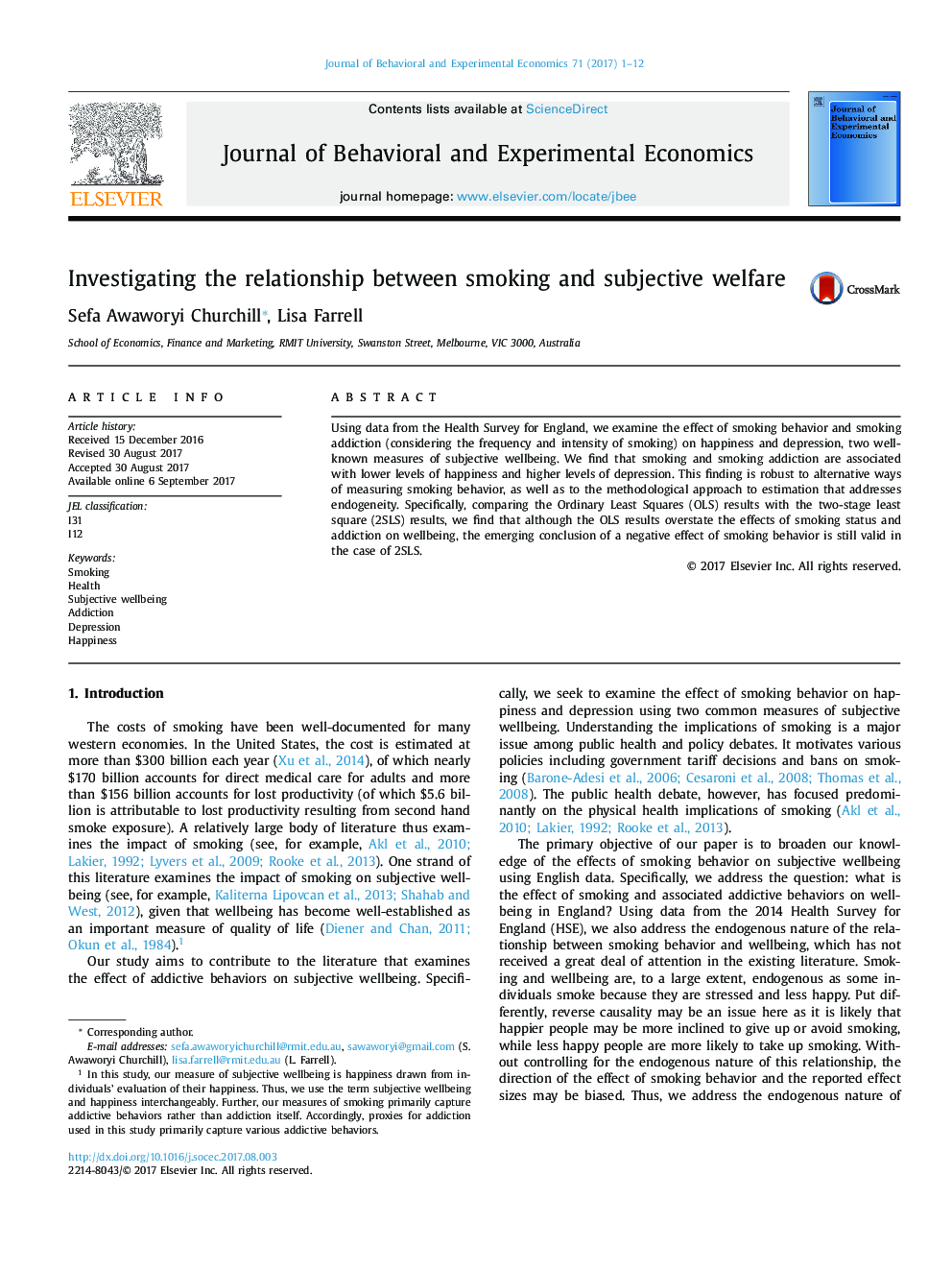| Article ID | Journal | Published Year | Pages | File Type |
|---|---|---|---|---|
| 5034080 | Journal of Behavioral and Experimental Economics | 2017 | 12 Pages |
Abstract
Using data from the Health Survey for England, we examine the effect of smoking behavior and smoking addiction (considering the frequency and intensity of smoking) on happiness and depression, two well-known measures of subjective wellbeing. We find that smoking and smoking addiction are associated with lower levels of happiness and higher levels of depression. This finding is robust to alternative ways of measuring smoking behavior, as well as to the methodological approach to estimation that addresses endogeneity. Specifically, comparing the Ordinary Least Squares (OLS) results with the two-stage least square (2SLS) results, we find that although the OLS results overstate the effects of smoking status and addiction on wellbeing, the emerging conclusion of a negative effect of smoking behavior is still valid in the case of 2SLS.
Related Topics
Social Sciences and Humanities
Economics, Econometrics and Finance
Economics and Econometrics
Authors
Sefa Awaworyi Churchill, Lisa Farrell,
